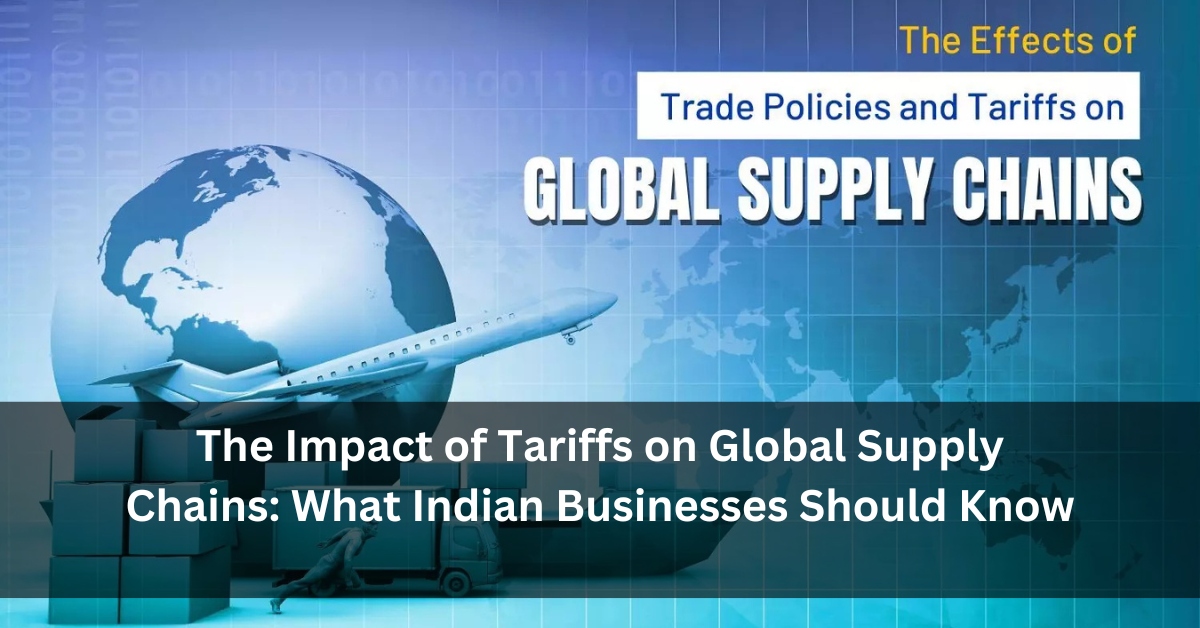The Impact of Tariffs on Global Supply Chains: What Indian Businesses Should Know
As global trade becomes more uncertain, one topic is gaining major attention: tariffs. Whether you are a small Indian business owner, an exporter, or someone interested in world business trends, understanding how tariffs affect supply chains is now more important than ever. At Blog Lovin, we break this complex topic into easy terms just for you.
What Are Tariffs?
Tariffs are taxes that a country puts on goods coming in from other countries. For example, if India imports mobile phones from China, the government may put a tariff (tax) on each phone. This makes the imported phones cost more, which can protect local manufacturers.
While this sounds like a good move for local industry, it can also cause problems. Let’s understand how.
Global Tariffs: What’s Happening in 2025?
In 2025, big economies like the USA and China are in a trade war again. The U.S. recently put new tariffs on a wide range of imported goods to support local industries and reduce reliance on foreign products. China responded with its own tariffs. Europe also joined the game by introducing new trade policies.
All this has created a ripple effect across the world. Supply chains — the global system used to produce and deliver products — are now facing delays, higher costs, and confusion.
How Do Tariffs Affect Global Supply Chains?
Let’s say a car company in Germany makes cars using parts from China, assembles them in India, and sells them in the U.S. If any country adds tariffs on these parts, it disrupts the whole chain.
Here are some major effects:
- Higher Costs: Goods become more expensive due to added taxes. This can reduce profits or lead to higher prices for customers.
- Delays in Delivery: Suppliers may struggle to meet new customs rules or shift to new locations, causing long delays.
- Change in Suppliers: Businesses might switch to suppliers in countries with fewer tariffs. For example, instead of China, they may choose Vietnam or even India.
- Uncertain Planning: With rules changing fast, long-term planning becomes difficult. This is risky for all types of businesses.
What Does This Mean for Indian Businesses?
This global shake-up could be a golden chance for Indian businesses.
- 1. India as a Manufacturing Hub: Many companies are now looking to move manufacturing out of China. India, with its growing infrastructure and large workforce, is becoming a strong alternative.
- 2. Government Support: India’s Production-Linked Incentive (PLI) schemes are encouraging companies to Make in India. This reduces dependence on imports and boosts local jobs.
- 3. More Exports from India: As companies search for new supply partners, Indian exporters may get more orders. Sectors like pharma, textiles, electronics, and auto parts are already seeing this change.
- 4. Logistics Growth: Ports, highways, and warehousing facilities in India are improving. This supports smoother trade, both domestically and internationally.
How Can Indian Businesses Prepare?
- Diversify Suppliers: Don’t rely on a single country. Try working with multiple suppliers across Asia or the Middle East.
- Study Government Policies: Keep track of changing trade agreements and incentives. This helps in making informed decisions.
- Invest in Tech: Use digital tools to track goods, manage risks, and plan better. Supply chain software can reduce delays and improve accuracy.
- Focus on Quality: With the world watching, quality is key. Meet global standards to win big contracts.
Real-World Example
A Bengaluru-based electronics company that used to import parts from China faced huge delays in 2023 due to high tariffs. They started sourcing from Indian and Vietnamese suppliers instead. Now, they export to the U.S. under better trade terms. Their costs have gone down, and delivery is faster — all because they adapted early.
Final Words
Tariffs are more than just government taxes — they shape how goods move around the world. For Indian businesses, the current global tension is both a challenge and an opportunity. By staying informed, flexible, and focused on quality, India can rise as a key player in global supply chains.
Whether you’re a startup in Mumbai or a factory owner in Coimbatore, the message is clear: adapt now, or risk being left behind.
For more business insights and global trade updates in simple language, visit Blog Lovin — your go-to hub for smart and practical business news.
✅ Bookmark Blog Lovin
✅ Stay updated with business trends
✅ Learn how global changes impact Indian growth







